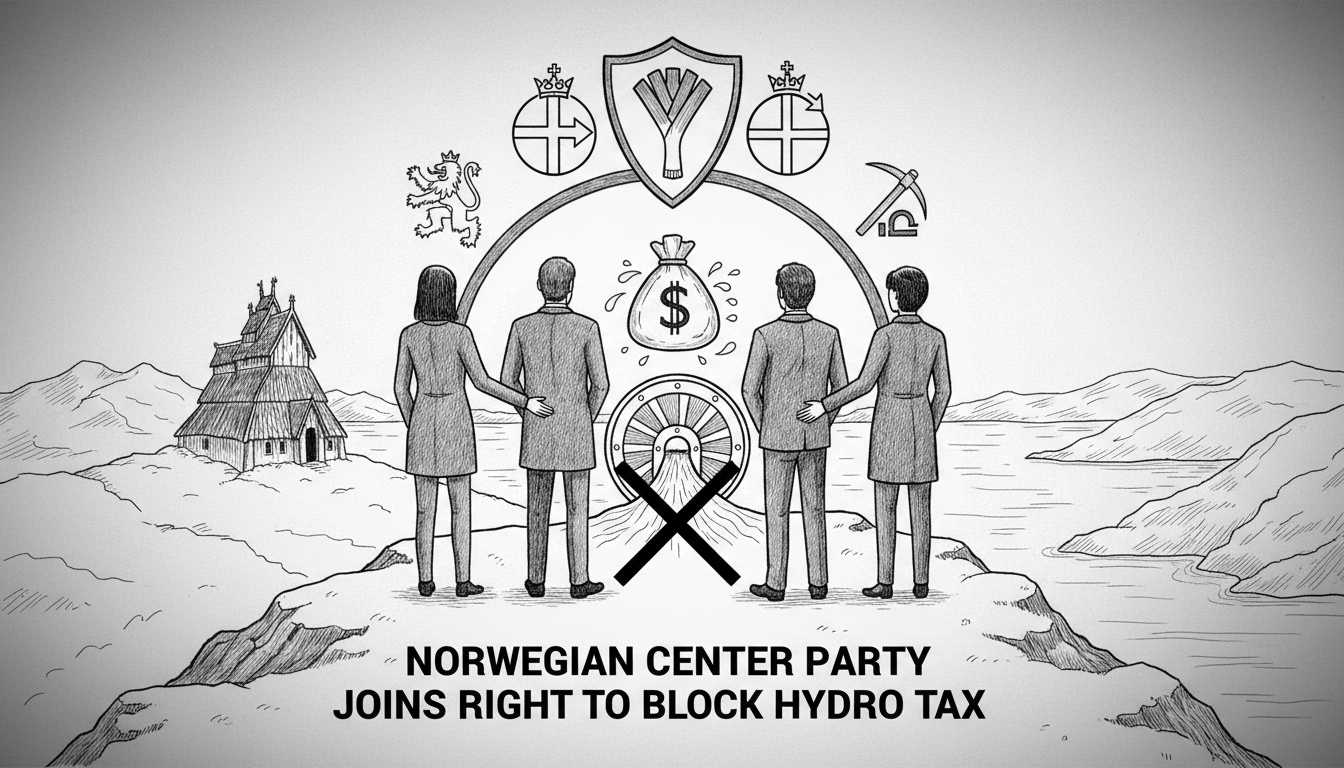Five Norwegian political parties have formed an unexpected alliance to stop the government's proposed tax increase on small hydropower plants. The Progress Party, Conservatives, Center Party, Liberals, and Christian Democrats announced their cooperation during an urgent press conference on Wednesday. Together they control 90 seats in Norway's parliament, enough to override the ruling Labor Party.
The government's proposal would lower the threshold for paying resource rent tax on hydropower plants from 10 megawatts to just 1.5 megawatts. This tax specifically targets the natural resource value of electricity production.
Maren Grøthe, the Center Party's energy policy spokesperson, explained the coalition's position. She said the proposed tax has created enormous uncertainty for small power companies, their employees, and industry suppliers. The government had argued that the current threshold encourages companies to deliberately reduce their power output, causing society to miss out on valuable renewable energy production.
This political development represents a significant shift in Norway's energy policy landscape. The Center Party traditionally positions itself as a centrist rural-focused party, making its alliance with right-wing parties particularly noteworthy. The collaboration suggests growing concern about the economic impact of energy taxes on Norway's rural communities where many small hydropower plants operate.
Small hydropower has been a cornerstone of Norway's renewable energy mix for decades. These facilities typically produce between 1-10 megawatts and are often locally owned. The proposed tax change would have affected hundreds of small producers across Norway's mountainous regions.
The government had already sent the proposal for consultation, indicating it was moving forward with the tax changes. The five-party coalition's ability to form a majority blocking vote demonstrates the fragile nature of Norway's current political landscape. This marks one of the first major parliamentary challenges to the government's energy policy agenda.
International readers should understand that Norway's electricity system is almost entirely renewable, with hydropower generating about 90% of the country's electricity. The debate over small hydropower taxation reflects broader tensions between maximizing state revenue from natural resources and supporting rural economic development.
What happens next? The government must now reconsider its approach to small hydropower taxation. It could modify the proposal to gain broader support or abandon the tax increase entirely. The five-party coalition has signaled it will maintain unity on this issue, potentially setting the stage for further collaborations on energy policy matters.
The outcome will affect Norway's renewable energy investment climate and rural employment. Small hydropower companies had warned that the tax increase could make many operations unprofitable, potentially leading to plant closures and job losses in regions that depend on this industry.

